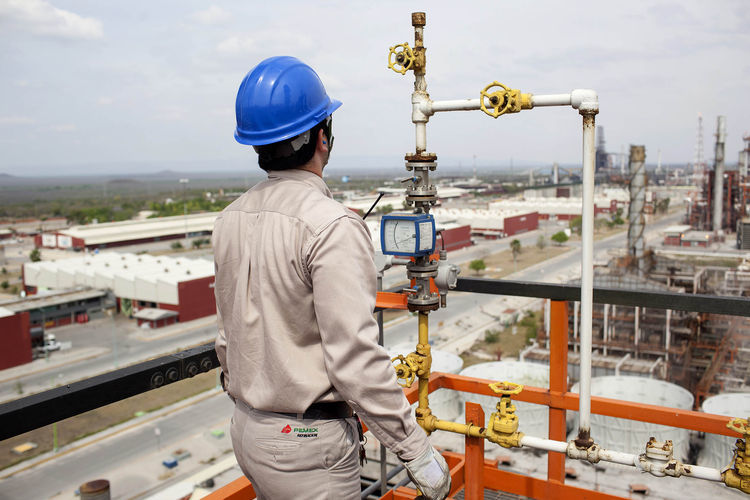
Petroleos Mexicanos has turned to bond repurchases, maturity extensions and swaps to reduce shorter-term debt, Chief Financial Officer Juan Pablo Newman said.
Pemex, which had $180 billion in total debt including pension liabilities at the end of the second quarter, has completed a transaction that includes extending the maturities on some bonds and a swap valued at $5.56 billion, Newman said during a press conference in Mexico City on Monday.
“This has been one of most robust operations that Pemex has realized in its history,” Newman said of the transaction. “By increasing the life of the bonds and their duration, our portfolio is less risky.”
The plan to reduce Pemex’s swelling debt comes at a time when Mexico’s largest company faces its most dire financial situation amid the collapse in oil prices and a continued reduction of capital expenditures that has resulted in a crude production forecast below 2 million barrels a day for 2017, the lowest level since 1980.
The company repurchased $1.35 billion in bonds maturing in 2018 and 2019 to extend the maturities to 2023 and 2047, while exchanging $1.68 billion in 2018 and 2044 bonds to push back the due dates until 2047, he said. The company’s total indebtedness increased a total of $2.5 billion as a result of the transaction.
Less Pressure
The company’s debt payments in 2018 and 2019 will decrease by 30 percent as a result of the transaction, he said. The company’s financial debt, not including pension liabilities, will be about $97 billion at the end of the year, he said.
The repurchases and debt swaps will improve the debt profile of the company at a time it’s on negative watch for a possible downgrade by Moody’s Investors Service and S&P Global Ratings, Newman said.
“It is the labor of the credit agencies to judge these types of actions, but, without question, they are positive points to prolong the average maturity date, to have access to the markets, and to have less refinancing risk,” Newman said. “All of these operations improve the debt profile of the company.”
Asset Sales
Since assuming the role as chief executive officer in February, Jose Antonio Gonzalez Anaya has reiterated the company’s goal to find new partners to boost investment and weather the continued deterioration of the company’s finances. Gonzalez Anaya has also said the company is considering selling stakes in its assets, such as pipelines and refineries.
Pemex, which last week completed a $1.1 billion sale of its stake in pipeline operator Gasoductos de Chihuahua, will present a business plan this year that will detail further asset sales the company plans to carry out, he said. The plan will “give certainty to the markets and our investors so that they can do respective planning,” Newman said.
The transactions were led by Barclays Plc, Citigroup Inc., HSBC Holdings Plc, Mitsubish UFJ Financial Group Inc. and Natixis SA, according to an e-mailed statement from Pemex. There was an investor demand of around $8.7 billion for the $4 billion bond sale, according to the statement.
Recommended for you
